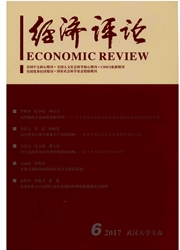

 中文摘要:
中文摘要:
新型城镇化所带来的农地制度、户籍制度和支农政策的调整为农民增收带来了机遇。机理分析和实证研究发现新型城镇化有效地促进了农民收入的增长,而制度调整的“增收效应”表现在:第一,由农地使用权期限的延长所带来的“收益保障效应”和“成本分摊效应”促进了农民增收,但该效应的发挥应以土地流转机制的完善为前提;第二,城乡分割的长期存在使得户籍放松政策难以发挥“增收效应”,后续政策应进一步加大户籍制度改革的力度;第三,财政金融支农政策通过对经营环境改善和人力资本积累的投入,促进了农民收入的长期增长;第四,相较于“东中西部地区差异”而言,城镇化促进农民增收的“南北地区差异”更为明显,且南方农村具有较强的“增收效应”。
 英文摘要:
英文摘要:
Adjustment of farmland institution, household registration system and agriculture support policy caused by New -type urbanization provides opportunities to farmers to increase their income. After mechanism and empirical analysis, we find that acceleration of urbanization undoubtedly increases farmers' income, and some other conclusions as follows: first, lengthening the operating life of farmland increases farmers' income by income- guarantee effect and cost -share effect with the premise of impeccable mechanism of land transfer; second, long division of urban and rural makes loosening policy of household register harder to express income - increasing effect, therefore, further reform towards the household register system is needed; third, financial support policy to agriculture promotes farmers' income growth by improving operational condition and accumulating human capital; finally, differences between the south and the north is more obvious in the mechanism of urbanization to farmers' income increase, and the country of the south has a stronger income - increasing effect.
 同期刊论文项目
同期刊论文项目
 同项目期刊论文
同项目期刊论文
 期刊信息
期刊信息
